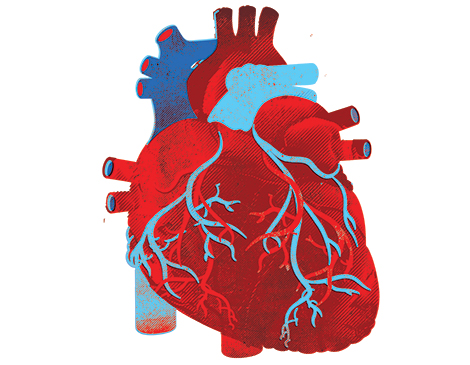With a virus so new, doctors are still determining how COVID-19 affects many different areas of the body. Dr. Mina Chung, a Cleveland Clinic cardiac electrophysiologist, is studying the novel coronavirus’ ability to infect heart and brain cells.

In April, the American Heart Association chose the Cleveland Clinic to serve as its Cardiovascular Impact Rapid Response Grant Coordinating Center. Led by Chung, the center is charged with collecting and disseminating the results of 16 AHA-funded research projects conducted at hospitals and universities around the country on COVID-19’s effect on cardiovascular and cerebrovascular systems.
“The virus that causes COVID-19 seems to have a little more cardiac effect than some of the prior coronaviruses like SARS-CoV and MERS-CoV,” Chung says of her research focus.
The team is currently looking at how common heart medications such as ACE inhibitors and angiotensin receptor blockers (ARBs) affect ACE 2 proteins present in high numbers on cells in the heart, blood vessels, lungs and gastrointestinal tract. One of the ways the novel coronavirus enters host cells is by using its name-inspiring spike protein to bind to ACE 2 proteins.
“Early on, data from China showed that people who have cardiovascular disease seemed to be more susceptible to more severe COVID-19 effects,” she says. “There was a concern because [in] the early studies, a lot of those people were on these ACE inhibitors and ARBs.”
The team’s study of clinic patient registry data indicates the drugs do not increase susceptibility to the virus and are not associated with more severe disease, she says. “In fact, there may be a trend toward better survival on both those medications.”
Click here to search the full list of Cleveland’s 962 top physicians in 69 specialties.




